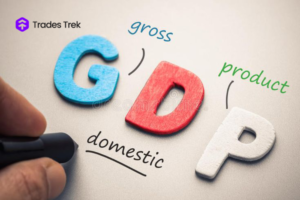Having a well-diversified portfolio across several sectors of the economy can help you manage risk, win big and become a successful investor. This mixed economy division is into sectors using industry classification.
A stock market sector is a group of stocks with lots in common with each other due to the same industry peculiarities. You can select stocks in industries that interest you from various possibilities to choose your investment. This article will explore the multiple sectors of the Nigerian stock market and the factors you should consider before investing in a specific area. Together, let’s ride in this vehicle.
The Sector of Utility
This vast industry includes businesses that distribute energy and provide gas, water, and electricity services. These businesses specialize in providing water delivery, transferring and distributing natural gas, and making electrical power accessible to the general public. Private companies that offer these services also belong under this category. Nigerian utility industry firms include Geregu Power, Transcorp, and others.
The Sector of Communication
Media corporations, the entertainment industry, telecom service providers, telecom networks, and traditional landline services are some businesses in this area. These include the internet, radio, and television—companies like MTN.
Agricultural Sector
One of the stock market’s fastest-growing industries is agriculture. The Nigerian stock exchange is one of the finest venues for raising cash for this sector’s growth and expansion. The Nigerian stock exchange’s Agriculture sector currently has five businesses listed. Actors in this sector include, for example, Livestock FeedS, Okomu Oil Palm, FTN Cocoa Processors, etc.
The Sector of Consumer Staples
Businesses that deal with beverages, cigarettes, personal care items, and domestic goods include the consumer staples category. These businesses include Unilever, Guinness, Dansugar, Flourmill, and others.
Healthcare Sector
Pharmaceutical firms, surgical supplies, medical equipment, health insurance, and the supplies required for clinical trials that test the treatment are all included in the healthcare sector. It also includes businesses that provide healthcare services and equipment. Ekocorp, Pharma-Deko, Neimeth International Pharmaceutical, and other companies are examples of those operating in Nigeria’s healthcare industry.
Oil & Gas Industry
The oil and gas industry, also called the energy industry, comprises businesses that extract, process, and transport crude oil, natural gas, and equipment. This industry also includes companies that produce consumable fuels like coal and other materials and services for oil and gas producers. These businesses, including Conoil, Oando, Chevron, Capital Oil PLC, and others, are listed on the Nigerian stock exchange.
Materials Sector
These businesses manufacture steel, paper, chemicals, glass, and metal. Firms in the material industry often offer a variety of products used in manufacturing, building materials, and packaging items. Nigeria’s material sector includes Multiverse Mining and Exploration, Notore Chemical Industry, and other businesses.
Financial Sector
The Nigerian Stock Exchange has many businesses in the financial sector. They involve financial institutions, including banks, mortgage lenders, brokerage houses, investment banks, and any other company whose primary goal is to make money, including Zenith Bank, Royal Exchange, Sovereign Trust Insurance, Union Home Savings and Loans, etc.
Technology Information
This industry includes businesses that offer software for software pricing, IT goods, and IT services. Companies that produce hardware, such as computers, mobile phones, and communication devices. Organizations like NCR (Nigeria), Omatek Ventures, etc.
Industrial Sector
Companies manufacturing construction and electrical equipment also offer employment, transportation, and security services. The businesses in this sector work in the manufacturing, construction, and engineering sectors, as well as the production and distribution of goods and services. Lafarge Africa, Berger Paints, Dangote Cement, and other businesses are examples of those operating in the area.
Consumer Discretionary Sector
Modern retail centres, hotels, and stores are part of the consumer discretionary industry. They are merely businesses that create long-lasting products. As the economy expands, this industry also does. Nestle Nigeria, the Ikeja Hotel, BUA Foods, Cadbury Nigeria, etc., are a few examples of businesses in this industry.
After examining the various sectors of the Nigerian stock market, it is now time to investigate the elements taken into account before selecting a sector that best meets your investment objectives to increase your chances of making sustainable gains as an investor.
Factors to Consider Before Selecting a Stock Market Sector
By identifying the sectors that are driving the market higher and the top companies inside those sectors, investors can try to outperform the market. Stocks in particular industries have an economic boost when the economy is doing well. Success in the stock market comes from your ability to recognize the sectors and specific stocks that are performing well. Not all equities will do well because the demand is rising; some will significantly outperform others.
Even if the economy isn’t doing well, some industries and businesses can defy the general trend. Continue reading as we discuss factors you should consider when selecting a sector to invest in.
Identify a Trend Using Charts
Investors should use different time frames within charts to find trends before selecting a sector or stock. Investors can use charts to identify a sector’s or stock’s movements. The length of time a trend has been around is crucial information. There are many time frames to take into account, though. A shorter time frame, such as a daily chart, may show a correction, whereas a weekly or monthly chart may suggest an increase. As a result, while examining different time frames, be alert for competing patterns within a sector or stock. Ensure to note the primary trend and if it is continuing or losing momentum. A long-term chart helps pinpoint the movement, while intermediate- and short-term charts can identify the precise entry and exit points.
It takes little luck or research to pick the finest sector funds to invest in for future profits. It only requires a quick analysis of patterns and some background information on previous results. To do that, scan each industry and select the top three performers.
Analyze Time Frames
We can identify the hottest sectors by looking at multiple time frames, which are not only performing well right now but have also demonstrated strength in the past. Depending on their investment time horizon, investors will select different time ranges. We then pick the industry that has the best performance. Investors can diversify their portfolios by picking a couple of the top industries.
To Sum Up
Before investing in any sector, you should be aware of concentrating too much of your portfolio’s risk in a single sector. Additionally, it would help if you didn’t time the market shortly.
It seems sensible to diversify your investment holdings and consider a range of industries, stocks, and funds. Using charts and technical analysis, you may also determine which industries are experiencing an upsurge.




